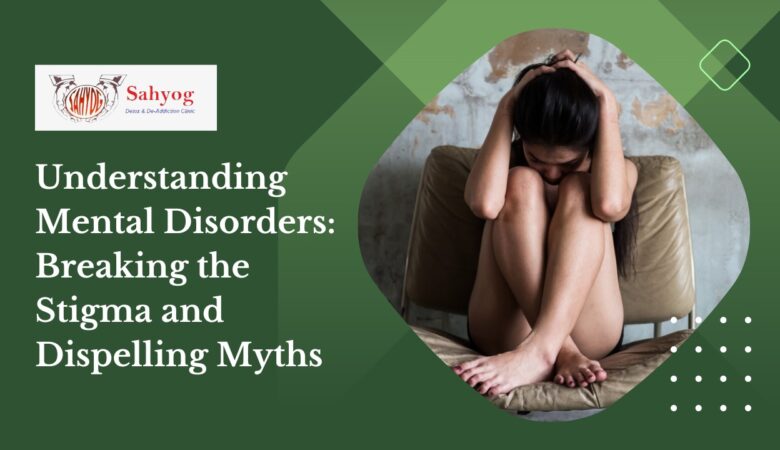10 Commonly Misunderstood Mental Disorders and How to Support Loved Ones who Suffer
Welcome to our blog post on “10 Commonly Misunderstood Mental Disorders and How to Support Loved Ones who Suffer”! Mental health is an incredibly important topic that affects millions of people worldwide. Unfortunately, there are still many misconceptions surrounding various mental disorders, leading to stigmatization and a lack of understanding. In this article, we will delve into 10 commonly misunderstood mental disorders, shedding light on the realities behind these conditions. We will explore their symptoms, causes, and treatment options while providing valuable insights into how you can support your loved ones who may be struggling with these challenges. Whether it’s Borderline Personality Disorder or Obsessive-Compulsive Disorder, Schizophrenia or Bipolar Disorder – each disorder presents its unique set of struggles for those experiencing them. By gaining a deeper understanding of these conditions and learning how to offer compassionate support, we can make a positive difference in the lives of our loved ones. So let’s break down the barriers surrounding mental illness together and empower ourselves with knowledge and empathy. It’s time to debunk myths, challenge stereotypes, and create a more inclusive society where everyone feels understood and supported. Are you ready? Let’s dive in! Borderline Personality Disorder Borderline Personality Disorder (BPD) is a complex and often misunderstood mental disorder. People with BPD experience intense emotions, unstable relationships, and difficulty regulating their thoughts and behaviors. It can be challenging to understand and support someone with BPD, but it is crucial to remember that they are not intentionally causing pain or chaos in their lives. One of the most common misconceptions about BPD is that individuals with this condition are manipulative or attention-seeking. In reality, they often struggle with feelings of emptiness and fear of abandonment, which can manifest as desperate attempts to maintain close relationships. It’s important to approach these behaviors with empathy rather than judgment. Another misconception about BPD is that it cannot be effectively treated. While it may take time to find the right combination of therapies and medications, many people with BPD can learn healthy coping mechanisms and lead fulfilling lives. Supporting a loved one with BPD requires patience, understanding, and open communication. It’s essential to validate their experiences without enabling destructive behavior patterns. Encouraging them to seek professional help from therapists who specialize in treating Borderline Personality Disorder can also make a significant difference in their recovery journey. Remember that everyone’s experience with mental illness is unique; what works for one person may not work for another. By being compassionate listeners and offering non-judgmental support, we can create an environment where individuals living with Borderline Personality Disorder feel understood and valued. Post-Traumatic Stress Disorder Post-Traumatic Stress Disorder (PTSD) is a commonly misunderstood mental disorder that can have a significant impact on the lives of those who suffer from it. It often occurs after experiencing or witnessing a traumatic event, such as military combat, natural disasters, or physical assault. One of the main misconceptions about PTSD is that it only affects veterans. While it is true that many soldiers develop PTSD due to their experiences in war zones, this disorder can affect anyone who has experienced trauma. It’s important to remember that trauma is subjective and what may be traumatic for one person may not be for another. The symptoms of PTSD can vary from person to person but generally include intrusive thoughts or memories related to the traumatic event, nightmares, flashbacks, avoidance of triggers associated with the trauma, and heightened anxiety or irritability. These symptoms can make it difficult for individuals with PTSD to function in their daily lives and maintain healthy relationships. Supporting loved ones who suffer from PTSD requires patience, understanding, and empathy. Avoid minimizing their experiences or telling them to “just get over it.” Instead, listen actively without judgment and provide a safe space for them to express themselves. Encourage them to seek professional help if needed and offer assistance in finding resources such as therapists specializing in trauma treatment. It’s also crucial to educate yourself about PTSD so you can better understand what your loved one might be going through. This knowledge will enable you to offer support tailored specifically for their needs while avoiding triggering situations or comments unintentionally. Remember that recovery takes time and healing looks different for everyone. Be patient with your loved one as they navigate through their journey towards healing from post-traumatic stress disorder. Obsessive-Compulsive Disorder Obsessive-Compulsive Disorder (OCD) is a mental disorder that often gets misunderstood. It goes beyond simply being neat or organized, as many people believe. OCD is characterized by intrusive thoughts and repetitive behaviors that can take over someone’s life. People with OCD experience obsessions, which are unwanted and distressing thoughts, images, or impulses that repeatedly intrude their minds. These obsessions can be about anything from germs to harming others. To cope with these obsessions and alleviate anxiety, individuals engage in compulsions – repetitive rituals or behaviors such as excessive cleaning or checking. Living with OCD can be incredibly challenging for both the person experiencing it and their loved ones. It’s important to remember that they don’t choose to have these intrusive thoughts or perform these rituals; it’s something they feel compelled to do due to their intense anxiety. Supporting someone with OCD involves understanding and empathy. Listening without judgment and offering reassurance can go a long way in helping them manage their symptoms. Encouraging them to seek professional help from therapists who specialize in treating OCD is also crucial. Remember, dealing with OCD requires patience and compassion. By educating ourselves about this misunderstood disorder, we can offer better support to our loved ones who are affected by it. Schizophrenia Schizophrenia is a complex and often misunderstood mental disorder that affects millions of people worldwide. It is characterized by a range of symptoms, including hallucinations, delusions, disorganized thinking and speech, and impaired social functioning. One important thing to understand about schizophrenia is that it is not the same as having multiple personalities or being violent. These are common misconceptions perpetuated by movies and popular


